LATEST INSIGHTS
Your Present Location: LATEST INSIGHTS-
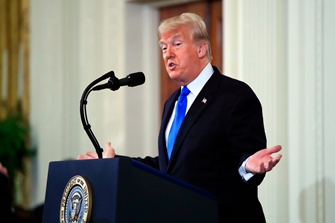
For now, talk of cooperation in US politics
US President Donald Trump said he is willing to work across the aisle with Democrats in the House of Representatives but vowed to fight if they push back, after the party regained the lower chamber of Congress in the midterm elections on Tuesday.
2018-11-09 -
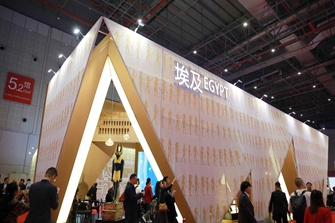
Hisham El-Zimaity: Shanghai Moment, a new dimension to the BRI
The Prime Minister of Egypt Mostafa Madbouly congratulated Chinese President Xi Jinping, and expressed satisfaction at the great success of the China International Import Expo (CIIE), the first-ever import-themed national-level expo, as the president inaugurated the Egyptian pavilion at the fair.
2018-11-09 -

Ding Gang: Why I enjoy ‘China From Above’ TV series
Since drones were widely used to shot movies, filming China from the sky has become a fashion. Recently I watched Season 2 of China From Above, a documentary television series co-produced by China Intercontinental Communication Center, National Geographic Channel, NHNZ and Beach House Pictures, and got a new understanding of how to introduce China to the world.
2018-11-08 -

Wang Peng: Will Exercise Trident Juncture bring back a new Cold War?
It is reported that Russia will march in Red Square on November 7 in dedication to the 77th anniversary of the 1941 military parade. At the same time, the “Exercise Trident Juncture 18,” NATO's largest military maneuver since the Cold War, is taking place from October 25 to November 7 in and around Norway.
2018-11-08 -

Is US-China trade war becoming 'nuclear'?
Christopher Ford, Assistant Secretary of State for International Security and Non-Proliferation told the Financial Times that the US has warned the UK of the risks of nuclear cooperation with China. Ford added that China may use new overseas projects involving China General Nuclear Power Corporation (CGNPC) to steal technology and enhance its military nuclear capacity.
2018-11-07 -
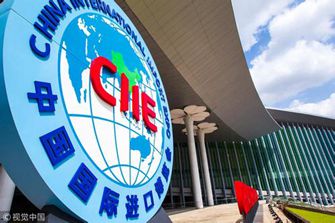
Wang Yiwei: China's import expo offers new prop to BRI construction
The first China International Import Expo starts to count down as it opens tomorrow with Chinese President Xi Jinping delivering remarks at the opening ceremony. Over 1,000 companies from 58 Belt and Road (BRI) countries will participate in the event to seek ways to achieve a more open and inclusive vision of world trade.
2018-11-06 -
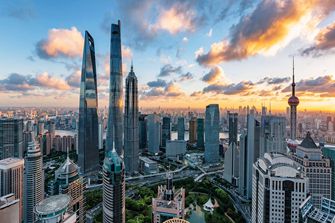
Wang Peng: China's developing business environment shows opening up is ongoing
This year is the 40th anniversary of China's entry into the era of “reform and opening up”. In the past four decades, China has grown from a dispensable and marginalized portion of the globe to the world second largest economy.
2018-11-06 -

Policy implementation vital to help Chinese private firms out of difficulties
Down-to-earth implementation of the central government's support policies for China's private companies and theoretical innovation are essential to help the firms out of their current difficulties, analysts said on Monday.
2018-11-06 -
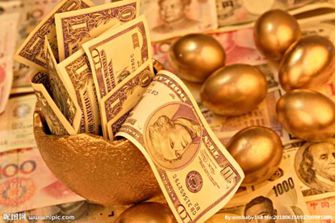
China's financial risks under control but scrutiny of external threats needed
External factors such as a big drop in the US stock market might be a risk that could endanger China's financial stability, analysts said on Sunday. The comments came after the People's Bank of China (PBC), the central bank, issued its report on China's financial stability on Friday. The report said that the country's economic and financial risks are generally under control and there is no danger of systemic risks.
2018-11-05 -
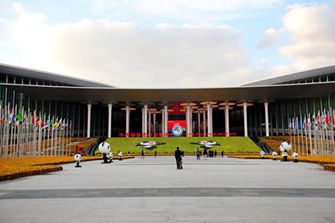
China to share market with the world
China's trade policy is shifting from excessive reliance on exports to a new emphasis on imports as the country finds new ways to stimulate consumption, a pillar of the domestic economy, experts said on Sunday.
2018-11-05 -
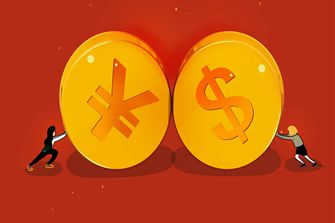
Trade relations between US and China is still full of variables
The leaders are expected to have face-to-face talks in Argentina later this month, in hopes of resolving major trade issues. Since July, the United States has imposed tariffs on 250 billion US dollars' worth of Chinese goods and China has responded with tariffs on 110 billion US dollars' worth of US goods.
2018-11-05 -
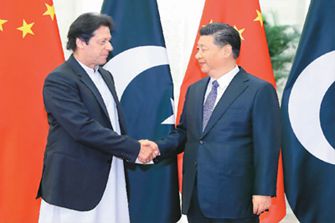
Liu Zongyi: Khan’s visit infuses momentum in ties
Pakistani Prime Minister Imran Khan started his first official visit to China Friday last week. The two nations signed 15 agreements on Saturday. Khan is also a guest of honor at the ongoing China International Import Expo (CIIE) in Shanghai.
2018-11-05 -
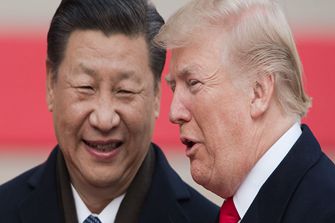
Wang Yiwei: US, China both need new identities for a new world
US President Donald Trump recently touted rosy developments in the world's most important relationship after a phone conversation with his Chinese counterpart Xi Jinping. He even suggested that a dinner be added to a sideline meeting at the G20 summit slated for early December. Meanwhile, Xi expressed the hope for healthy and stable development in bilateral relations.
2018-11-05 -
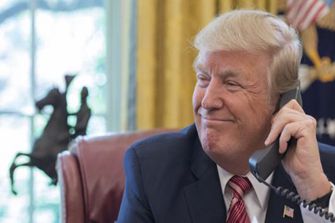
Xi-Trump phone talks a positive sign
Chinese President Xi Jinping discussed issues of common interest over the phone with his US counterpart Donald Trump on Thursday, in what Liu Zhiqin, from the Chongyang Institute for financial studies at Renmin University of China, said was an important signal from both sides.
2018-11-05 -
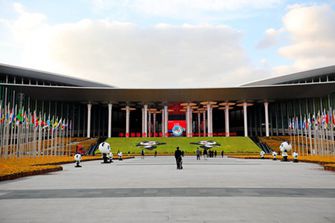
China to share market with the world
China's trade policy is shifting from excessive reliance on exports to a new emphasis on imports as the country finds new ways to stimulate consumption, a pillar of the domestic economy, experts said on Sunday.
2018-11-04 -
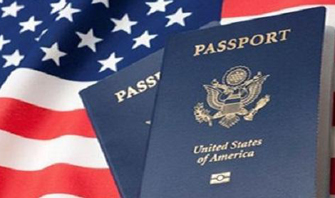
Liu Zhiqin: By distrusting immigrants, US invites its decline
Donald Trump has become the most daring president to challenge tradition among all US presidents and even in the world. He breaks the old order in an attempt to thoroughly revise rules which he believes are unreasonable and hasn't shown any sign of stopping.
2018-11-02 -
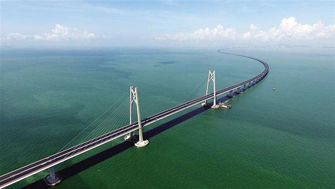
John Ross interviewed on opening of Hong Kong-Zhuhai-Macao Bridge
Chinese President Xi Jinping yesterday opened the world’s longest bridge nine years after construction began. The 34-mile-long span will connect Hong Kong and Macau to the Chinese mainland and is supposed to enhance economic growth in the region. The BBC and other British media are treating the bridge like an act of aggression. But Chinese planners expect great economic progress in the region. John Ross, Senior Fellow at Chongyang Institute for Financial Studies, Renmin University of China.
2018-11-02 -
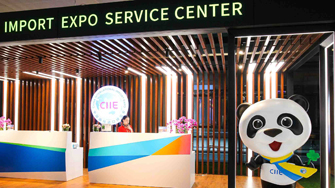
Guan Zhaoyu: The global significance of China’s expanding imports
The upcoming China International Import Expo (CIIE) starting on November in Shanghai will offer a historic opportunity for companies from all over the world to access China's vast market. Since China is the world's second largest importer and consumer market, the relationship between China's import and the development of the world economy becomes self-evident.
2018-11-02 -

Ding Gang: Chinese companies acquire new identity abroad
I met Victor Cortese in the power distribution room of a construction site in Panama. A Venezuelan, he has worked there as an electrical engineer for more than a year.
We visited the new Panama convention center that is under construction on a hot and humid October morning. China Construction America, a subsidiary of China State Construction Engineering Corp. Ltd. (CSCEC), is one of the two contracting companies for the project; the other is a local one.2018-11-01 -
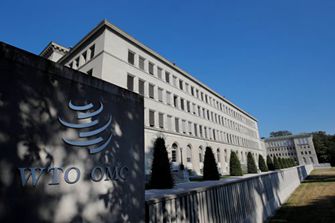
US steel, aluminum tariffs set to hurt its standing at WTO
The US could see lasting damage to its economy and its standing at the WTO, as major economies push forward their legal fight against US tariffs on steel and aluminum products at the global trade body, Chinese analysts said on Wednesday.
2018-11-01
























































































 京公网安备 11010802037854号
京公网安备 11010802037854号





